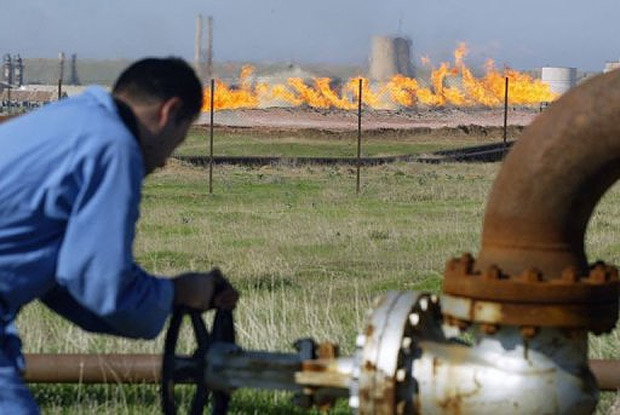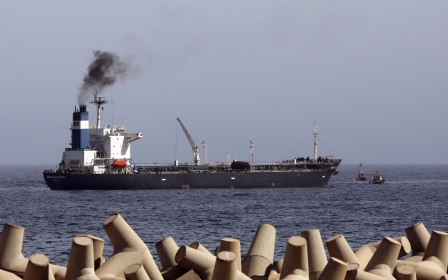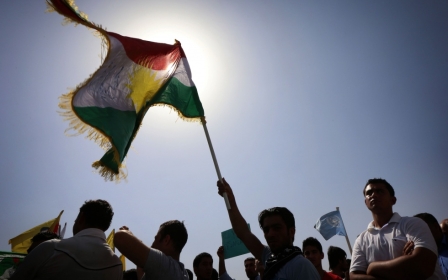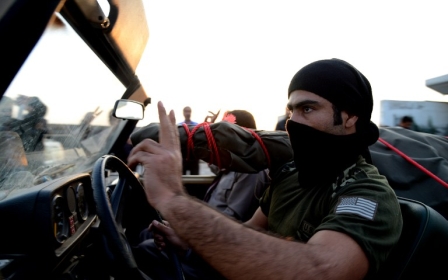Kurdistan pushes independent oil company plan after $500m deal with Iraq

A preliminary deal between Baghdad and Iraq's Kurdish region to resolve long-running financial disputes over oil has reduced a threat to national unity, Iraq’s oil minister said on Friday.
There has long been tension between the central government, based in the capital Baghdad, and the semi-autonomous region of Kurdistan in northern Iraq (KRG).
Baghdad opposes the KRG’s independent exporting of oil - Kurdish leaders, on the other hand, have criticised Baghdad for allegedly withholding budget payments from the region.
In a first move to end the disputes, the two sides have now agreed for Baghdad to pay $500m to Kurdistan in exchange for the transfer of 150,000 barrels of oil per day to the federal government.
The oil earmarked for Iraq’s central government will be approximately half of the KRG’s normal production.
Just as tensions between the two sides look to be easing, however, the Kurdish parliament is set to vote early next on proposals that would see the KRG reduce its ties with Baghdad.
Lawmakers will vote on a bill to create a bank account that will consolidate the region’s oil revenue, and to establish a publicly-owned company that would take charge of discovery, production and export.
The creation of a Kurdish company dedicated to managing the region’s oil would be a significant step towards the independent export of oil but, according to a source who spoke to news site Rudaw, it could take years to implement.
The ongoing crisis between Baghdad and the KRG has created "a rift that threatens not only economic, security and political interests, but also national unity," Iraqi Oil Minister Adel Abdul Mahdi said in a statement on Friday.
The dispute was harming both sides, with Iraq losing oil revenue and the Kurdish region not receiving federal budget payments, according to Abdul Mahdi.
But Friday's agreement, while not final, "opens the way" to permanent solutions, he added.
UN Iraq envoy Nickolay Mladenov also hailed the deal, calling it "a very important first step."
"This agreement will allow public sector employees in the governorates of Erbil, Dohuk and Sulaimaniyah to begin receiving their salaries. It will also allow the Kurdistan Regional Government to resume its contribution to the federal budget at a time of national crisis," Mladenov said in a statement.
The deal was reached at a meeting in the Kurdish capital Erbil between Abdul Mahdi, Kurdish regional Prime Minister Nechirvan Barzani and his deputy, Qubad Talabani, the Kurdish government said in a statement on Thursday.
The visit to Erbil was the first by Abdul Mahdi since his appointment as Iraq’s Oil Minister in September – he replaced Hussein al-Sharhistani, who took a strong stance against independent Kurdish oil exports.
The exports began in May 2014, when Kurdish officials announced a shipment of oil to the Turkish port of Ceyhan.
Turkey is a main buyer of Kurdish oil - there have also been reports that oil was offloaded in a port on the coast on Israel, though KRG officials consistently deny such claims.
KRG President Masoud Barzani is now due to head a delegation to Baghdad in the coming days, aimed at reaching “a comprehensive, fair and constitutional solution to all outstanding differences between the federal government and the KRG," the Kurdish government said in a statement.
The budget dispute has lasted almost a year and had led to a sharp deterioration of relations.
Resolving the budget feud is seen as an essential step in improving cooperation at a time when both are battling the Islamic State group, which has overrun large parts of Iraq since June.
However, there remain significant hurdles to finding a lasting solution to the conflict.
Kurdish politicians claim they are owed large sums in budget payments, which were halted in January 2014 in protest at the KRG’s oil exports.
The huge Kirkuk oil field in northern Iraq is also a point of contention – the federal government and the KRG both claim control of the field.
“There are issues that need to be resolved, but this is an important agreement,” Iraqi Finance Minister Hoshyar Zebari said on Thursday.
“It has removed a major obstacle in reaching a conclusive agreement in the future.”
New MEE newsletter: Jerusalem Dispatch
Sign up to get the latest insights and analysis on Israel-Palestine, alongside Turkey Unpacked and other MEE newsletters
Middle East Eye delivers independent and unrivalled coverage and analysis of the Middle East, North Africa and beyond. To learn more about republishing this content and the associated fees, please fill out this form. More about MEE can be found here.




